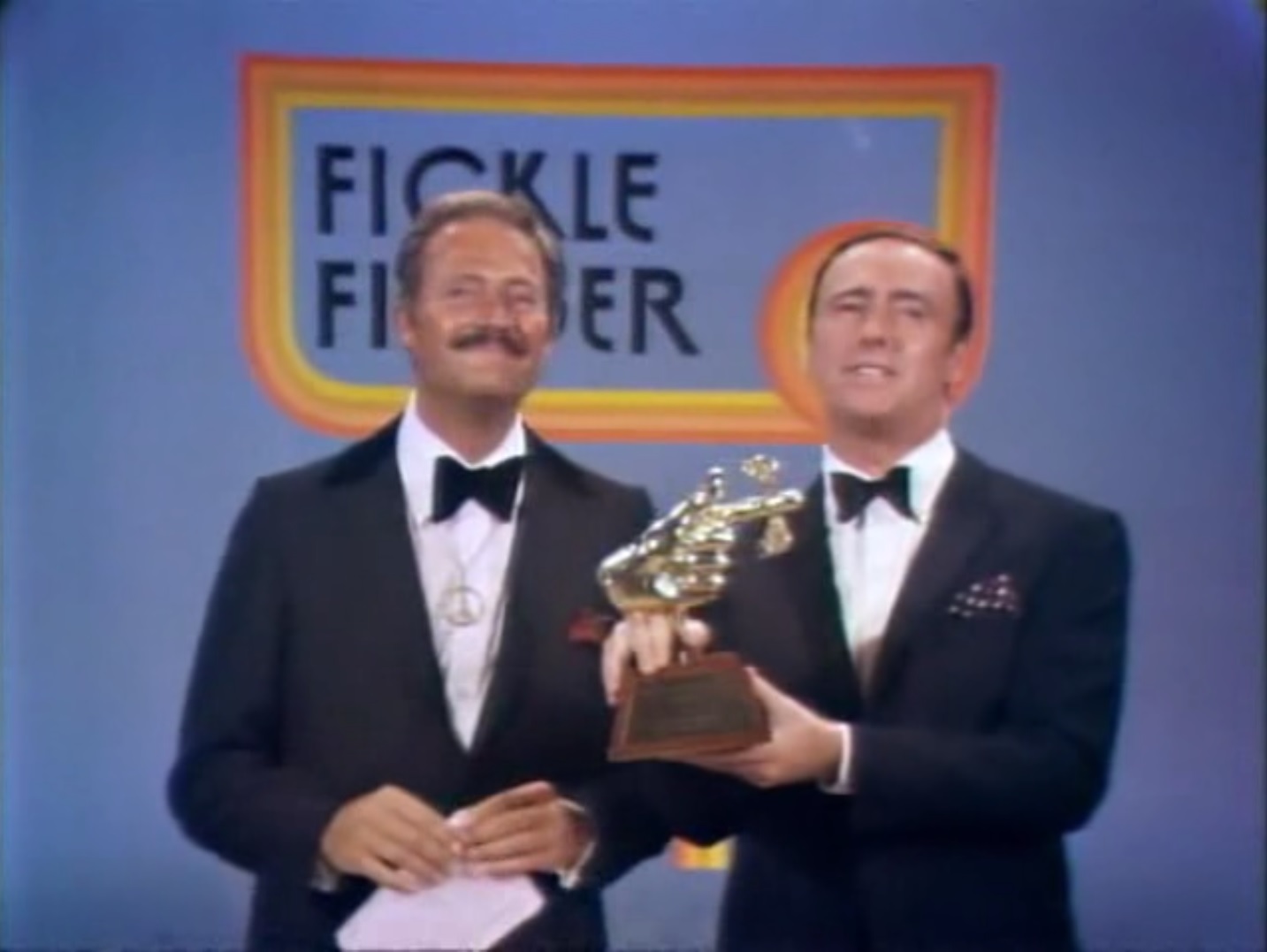
by Gideon Marcus
Well, I've waited too long to do one of these!
In 1961, I got myself a television. Not just any television—I went straight to a color set (an RCA), even as hardly anyone in the nation owned one. Heck, we still had stations that weren't broadcasting in color yet. I think NBC is the only one I can remember that touted its weekly day of color programming.

Anyway, I made up for lost time, watching a lot of (too much) television. I quickly came to agree with then-FCC commissioner Newton Minow's assessment of visual broadcast. He described it as "a vast wasteland."
Still, I found some worthy shows, and back in 1962, I put out a guide to the good shows on television at the time. In 1965, I came out with a sequel.
Why haven't I published a TV guide since? Well part of it is because we've given focus to individual shows. For instance, our Star Trek coverage has been very thorough. Janice wrote about The Green Hornet in 1967. Last year, our UK friends watched The Prisoner, which made a big splash when it hit American shores last summer. Also, Victoria Silverwolf covered the spy craze back in 1966, and that included a lot of TV shows, some of which are still on.
Nevertheless, as we head into the rerun season this year, it's a good time to look back on what's sprouted in the wasteland since our last update. After all, while some of the shows have since gone off the air, or are about to, you'll still get to catch them (often at more convenient times) in syndication.
Star Trek (1966-1969)

Obviously, this is the biggie. Star Trek was (well, there's one more episode to be aired, so technically "is") the first real science fiction series on television. Sure, there was kiddie fare before that, like Space Patrol (both the Corn Flakes-sponsored one and the puppet import from the UK) and Man in Space, not to mention (please don't mention) the profusion of Irwin Allen shows starting with Voyage to the Bottom of the Sea through Lost in Space to Time Tunnel and still going with Land of the Giants.
And yes, The Twilight Zone had SFnal episodes, and The Outer Limits was more explicitly sci-fi, but both shows were mostly inspired by the pulp era, the science fiction content primitive in the extreme.
Star Trek, for all its faults, derived from the science fiction of the '40s and '50s while spotlighting some of the social issues of today. The Enterprise essentially flew out of the pages of classic Astounding—which makes sense; Gene Roddenberry said as much to one of our friends at the 1966 Worldcon. We even had bonafide SF authors like Norman Spinrad, Robert Bloch, Jerome Bixby, Harlan Ellison, and Ted Sturgeon writing episodes…though the practice of soliciting pros quickly stopped when they began demanding too much money. Luckily, many of Trek's best episodes were written by newcomers. Indeed, one of the more gratifying things about the show has been that is has helped launch the careers of a number of women writers, Jean Lisette Aroeste and D.C. (Dorothy) Fontana being the names that immediately come to mind.
So even though the show is cruising toward a premature end of its five year mission, it is a must see when it inevitably gets rerun after this summer.
Mod Squad (1968-)

“One black, one white, one blonde”
If any show has heralded a sea change on the boob tube, it's Mod Squad. Cop shows have been a dime a dozen for a long time. Highway Patrol, 87th Precinct, Dragnet, Felony Squad, The F.B.I., Ironside, N.Y.P.D.—even Car 54, Where Are You? (admittedly, that one was a comedy). Indeed, shows about the police are starting to rival Westerns in terms of airtime dominance. Just this year, we got three of them: Hawaii Five-O, Adam 12, and the subject of this section.
But whereas the only distinguishing characteristic of the first one is its location (beautiful Hawai'i), and the second one is as bad as a patrol cop show from the makers of Dragnet and starring that program's worst guest actor could be, Mod Squad is Something Else.
Mod Squad is the story of three young adults, all with minor criminal rap sheets, all who decide to become undercover cops rather than do time. They quickly form a bond with each other and with their Captain, Adam Greer. Over the course of the season, they have busted narcotics rings, carjackers, helped nab corrupt cops, and otherwise proven their value to the force.
The difference? Heart. Mod Squad is oozing heart, with genuine chemistry amongst all the four leads. The cops in the other shows tend to be portrayed as benevolent(?) automatons. Pete, Julie, and Linc (and Adam) are human beings—compelling, vulnerable, admirable.
Beyond that, there's been a quantum leap in production. Everything in Mod Squad is on location, with mobile cameras and lots of action. Car chases, foot races, you name it. The show bursts with energy. Its lineage traces from the hip globetrotting of I, Spy and the philosophical earthiness and camaraderie of Route 66, and oft times, it surpasses both shows.
Watch it. Dig it. This one's going to be around a while, I predict.
The Monkees (1966-1968)
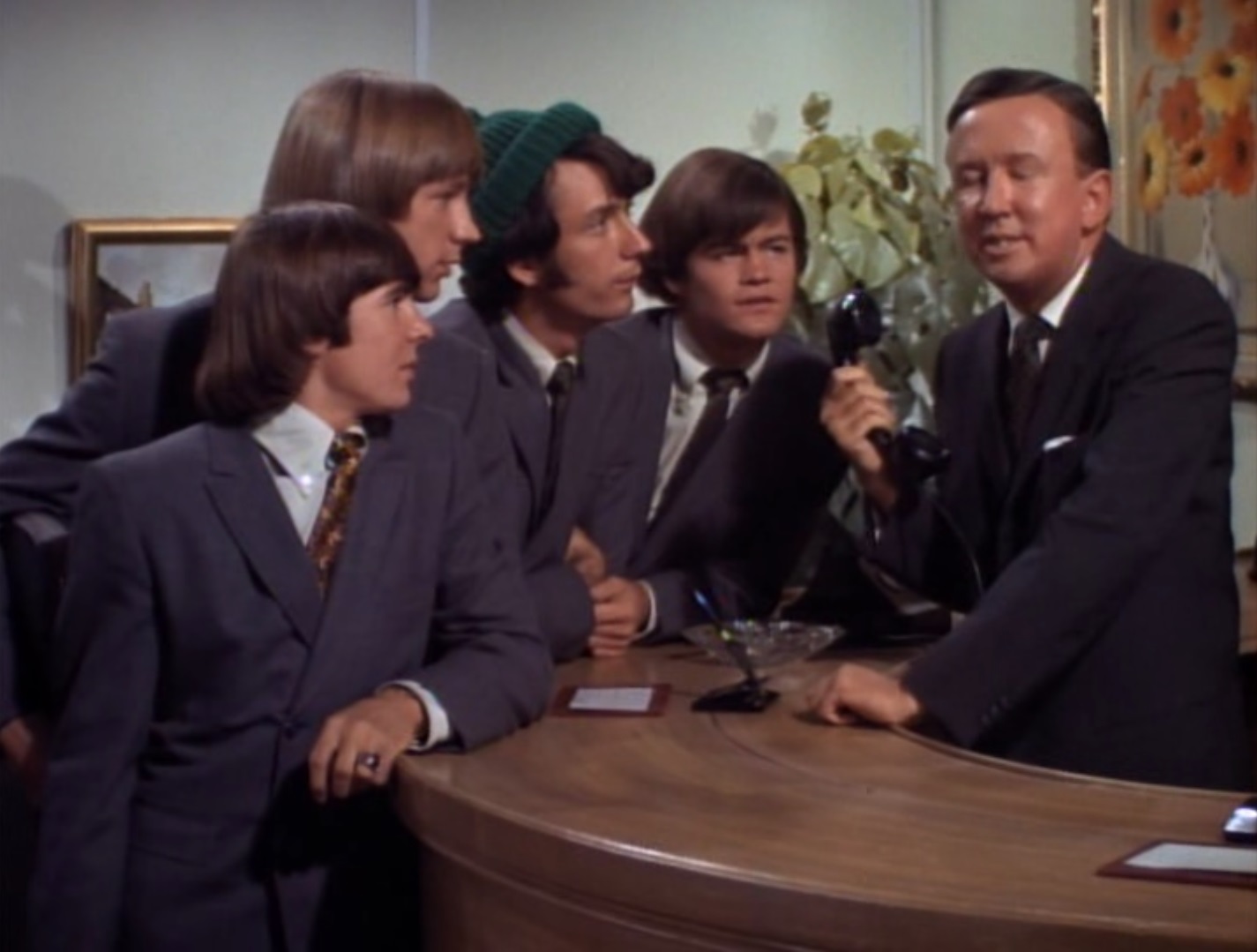
Debuting at the same time as Star Trek and on the same network, The Monkees flamed out more quickly. No surprise—comedy is hard to maintain, especially the kind of frenetic, innovative stuff you saw on that show. Beyond that, when you make a show about four charismatic musicians, you run the risk of said musicians actually having talent and wanting to do their own thing. No matter what the papers or the sneering cognoscenti say, The Monkees are all pretty talented people. After all, Peter Tork is an accomplished guitarist and folk singer, Mike Nesmith has penned a dozen hit songs (and not just for himself), and Micky and Davy are both decent performers as well as skilled actors.
It's no surprise that the show went off the rails, and then The Monkees demolished it entirely with their deconstructive movie, Head (not to mention their freak-out of a TV special: 33 1/3 Revolutions Per Monkee).
But if you get a chance to catch the show in rerun, it's worth it. It's genuinely funny, the musical interludes feature complete songs (get your tape deck ready!), the songs are excellent, and the foursome has magical chemistry. When they are a foursome—for some reason, Mike was on vacation for about a fifth of the episodes…
Laugh-In (1968-)

Speaking of successful comedy, it's hard to miss NBC's smashiest of smashes, the psychedelic, wild ride that is Rowan and Martin's Laugh-In. We've covered the show previously, so I won't go into too much detail. I will note that the program has evolved in the two years it's been on the air. This year, we got several new performers: Dave Madden, whose shtick is tossing confetti to signify he's having dirty thoughts; Chelsea Brown…The Black One (I hope they broaden her role next year); Alan Souse…The Homosexual (I hope they broaden his role next year).
It is impossible to understate the influence the show has had on pop culture. From "Here Come the Judge" to "Sock it To Me" to "Very Interesting", Laugh-In-isms are everywhere. On the last Bob Hope special, we counted three or four clear references to the show. Arte Johnson is doing Mustang commercials—in his Nazi persona (at least he's not shilling for Volkswagen). Half the cast guest starred (as themselves) on I Dream of Jeannie. Every week, you can see at least one of the team on some variety/talk show or another.
It is a very funny show, and hosts Dick and Dan have a natural rapport. Beyond that, the cast manage to come up with unique musical numbers every week, which is amazing. The women performers, in particular, are amazingly talented.
There are some warning signs: since Nixon got elected, perhaps with Laugh-In's help—Tricky Dick had a cameo earlier this year: "Sock it to me?" he exclaimed stiltedly—the show has tacked rightward in its commentary. In the last episode, the Reverend Billy Graham was the special guest, making rather unfunny jokes, and ending the show with a straightfaced endorsement of John 3:16. I'm not sure if Arte Johnson (in full Wehrmacht regalia) agreeing with the sentiment was intended to be ironic or not.
On the other hand, at least the show isn't as sexist as it used to be. The worst of that last season was when they had Cher Bono as a guest, and the musical number was about grasping wives. If anyone's the grasping wife in the Bono clan, it's Sonny.
Anyway, I don't need to tell you to watch it. You probably already are. Let's hope next season is even better.
Hollywood Palace (1964-)

When I was a very young, Vaudeville was king. Live song and dance—forget this radio and television jazz. Well, ABC's Hollywood Palace, put on in the building of the same name owned by none other than Bing Crosby, is the closest you'll get to the old Vaudeville days. Comedy, acrobatics, singing, magic…the works. All live (but taped).
Every week, there's a different host (Bing always claims the first and last nights for himself). Sometimes they're terrific, like the times Sammy Davis Jr. gets the job; sometimes we get Burl Ives. I'd say the show is pitched mainly at folks of my generation, maybe a touch older. The jokes, the guests, most were big a decade or two ago. That said, the Palace keeps things hip with acts like the Supremes and Gladys Knight. It's definitely not Lawrence Welk (for my parents), nor is it American Bandstand (for my kids).
Lorelei and I have been regular watchers of the show ever since we heard Tony Randall hosted it once. We're grateful it's had such longevity.
The Carol Burnett Show (1968-)

If you took Laugh-In and Hollywood Palace and shmushed them together, you'd get The Carol Burnett Show. Less frenetic than Laugh-In, but hipper than the Palace, it's a bit like if the latter show had just one host the whole time. Carol starts out each show with a question an answer segment that feels genuine and unrehearsed. The musical acts are a mix of looped and live performances. The skits range from domestic comedy to fractured fairy tales, utilizing the supporting cast of the prissy Harvey Korman, the hunky Lyle Waggoner, the adorable Vicki Lawrence (who usually plays Carol's sister; I'm amazed they aren't related), and whomever is guest this week.
It's a terrific show, and Carol is an excellent host. If I have any complaint, it's that the family skits play a little too hard into the marital discord bit. Also, as much as I love Ms. Burnett, eventually you can get too much of a good thing—week after week, skit after skit.
Still, definitely in the upper tiers of television!
That's Life (1968-1969)

Remember how I marveled that Laugh-In manages to produce a new musical number or two each week? Well That's Life tried to make a romantic sitcom that was a complete, hour-long musical on the same schedule!
Robert E. Morse (How to Succeed at Business Without Really Trying) and E.J. Peaker starred in a whirlwind tour of courtship, marriage, and family as they sang and danced through their lives. Each episode had a coterie of special guests (of course, our favorite was Tony Randall), and the whole thing was funny and fast-paced.
Well, you knew it couldn't last. After one season, it's gone. And having only gone on one season, it's likely we'll never see it in syndication. ¡Qué lastima!
Wild Kingdom (1963-)

One show that shows no sign of quitting is Mutual of Omaha's Wild Kingdom. Hosted by the Director Emeritus of the St. Louis Zoo, Marlin Perkins, this is quite simply the coolest nature program to be found. We get a new half-season at the beginning of every year. Marlin opens up each episode with a bit of in-studio discussion, often partnering with one of his fellow rangers (usually Jim, but occasionally Stan Brock, the South African mountain) and W.K., the chimpanzee.
Then it's off to the field: either a prerecorded feature narrated by someone else, or footage from a real safari that Marlin has gone on. Usually the latter involves tracking an endangered animal or rescuing some creature for scientific study. Marlin is no joke—at age 60+, you can still find him netting lions or sleep-darting elephants. Of course, Marlin doesn't hold a candle to Stan wrestling hippopotami or saving drowned calves.
I'm sure some of the editing is artfully done for drama, but it's still a great show, emphasizing the importance of preserving the natural abundance to be found in the Wild Kingdom.
Since this article is running long, I shan't bother listing the shows not worth watching. I won't even mention the C+ and B- television that I won't flip the idiot box off for, but which aren't worth seeking out. With just the shows I've recommended, you'll have plenty to watch out for!
Until next time… stay tuned in.










![[June 30, 1969] Anywhere but here (July 1969 <i>Analog</i>)](https://galacticjourney.org/wp-content/uploads/2024/06/690630analogcover-656x372.jpg)
![[June 20, 1969] Where to? (July 1969 <i>Fantasy and Science Fiction</i>)](https://galacticjourney.org/wp-content/uploads/2024/06/690620fsfcover_jpg-438x372.jpg)









![[May 20, 1969] Ad Astra et Infernum (June 1969 <i>Fantasy and Science Fiction</i>)](https://galacticjourney.org/wp-content/uploads/2024/05/690520coverfsf-652x372.jpg)



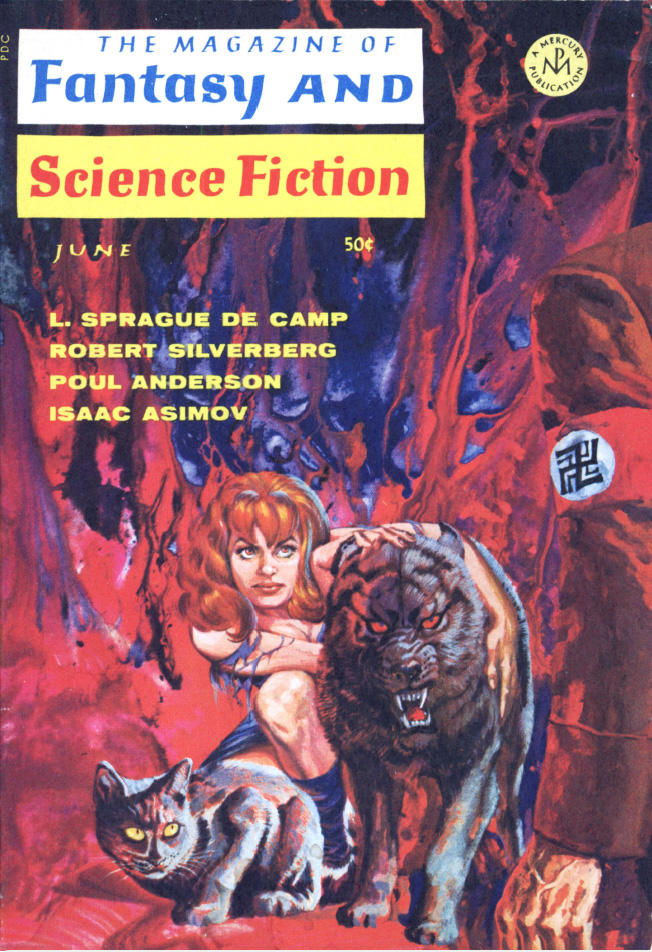
![[May 12, 1969] The Students are Revolting (the wargame <i>Up Against the Wall, Motherfucker</i>)](https://galacticjourney.org/wp-content/uploads/2024/05/690512upagainstthewall-1-672x372.jpg)

![[May 4, 1969] Navigating the Wasteland #3 (1966-69 in (good) television)](https://galacticjourney.org/wp-content/uploads/2024/04/690504laughin-672x372.jpg)












![[April 26, 1969] Downbeat (May 1969 <i>Fantasy and Science Fiction</i>)](https://galacticjourney.org/wp-content/uploads/2024/04/690424coverfsf-667x372.jpg)




![[April 8, 1969] Distractions (May 1969 <i>Galaxy</i>)](https://galacticjourney.org/wp-content/uploads/2024/04/690408cover-428x372.jpg)



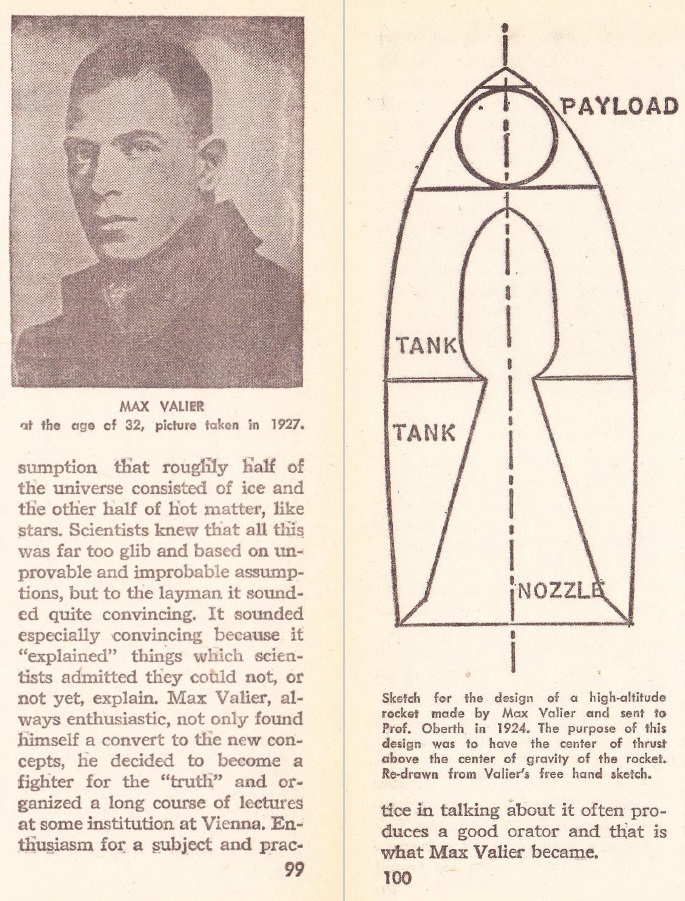


![[April 4, 1969] Hey, Mack! (April 1969 <i>Analog</i>)](https://galacticjourney.org/wp-content/uploads/2024/04/690331cover-672x372.jpg)

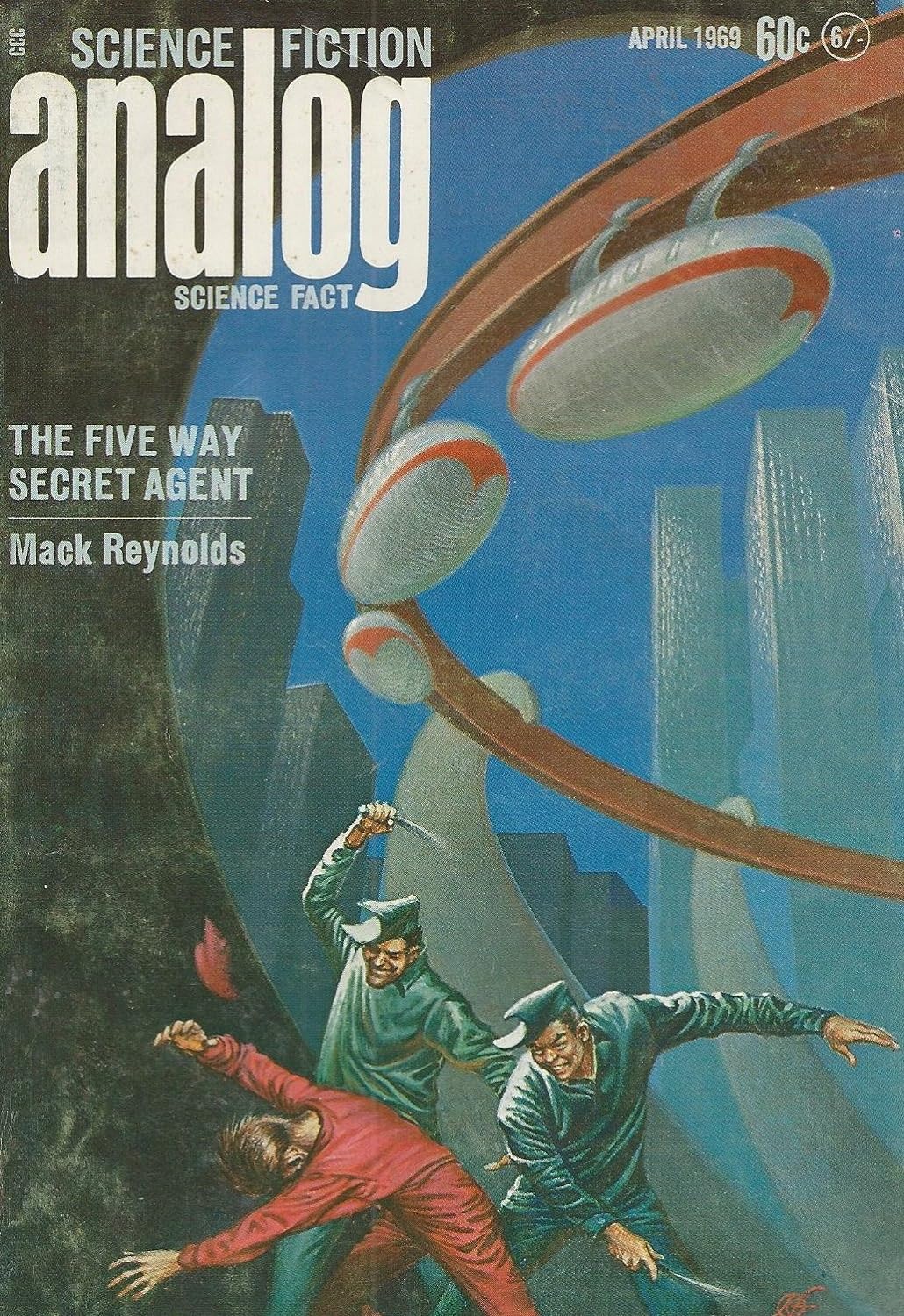
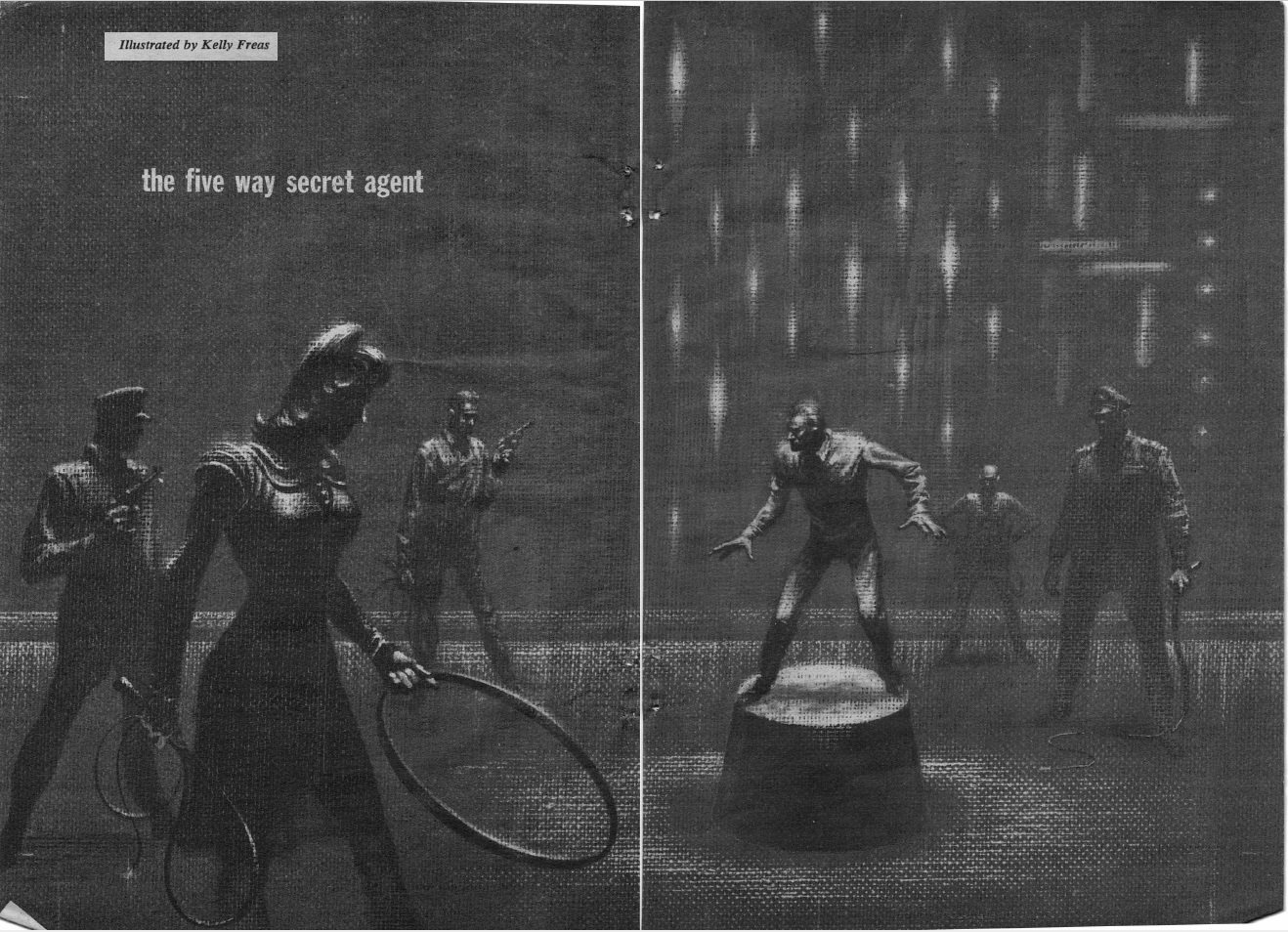
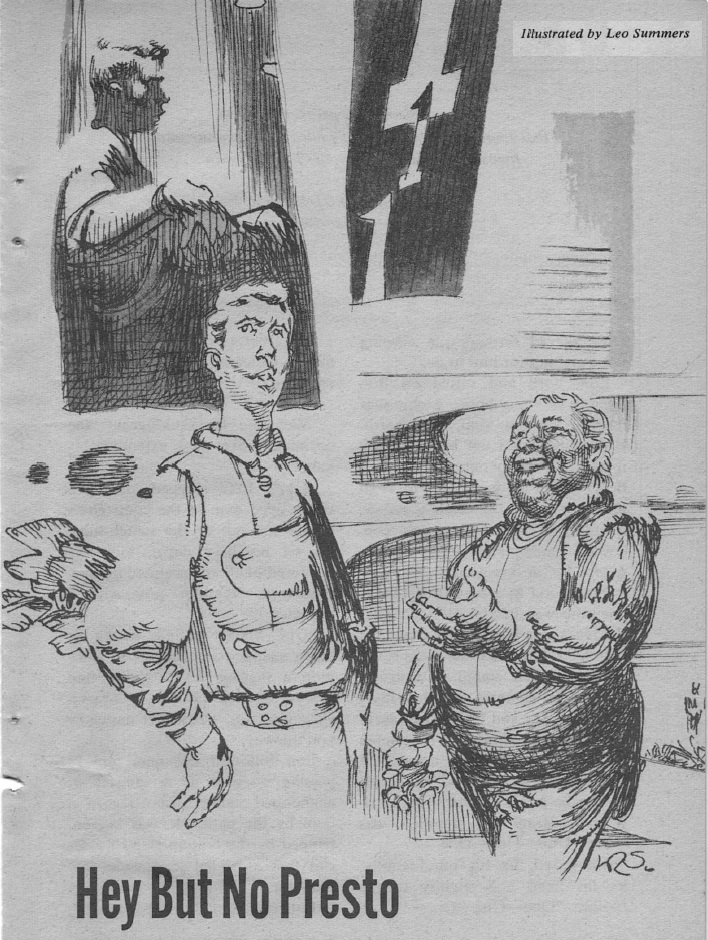

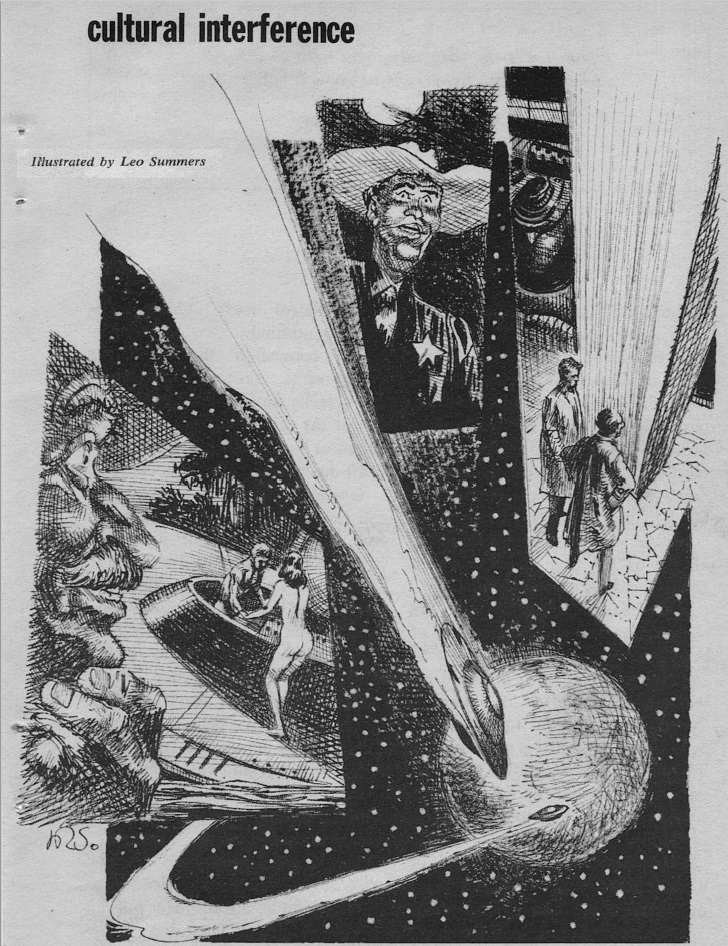


![[March 20, 1969] Going through the motions… (April 1969 <i>Fantasy and Science Fiction</i>)](https://galacticjourney.org/wp-content/uploads/2024/03/690320cover-672x372.jpg)
